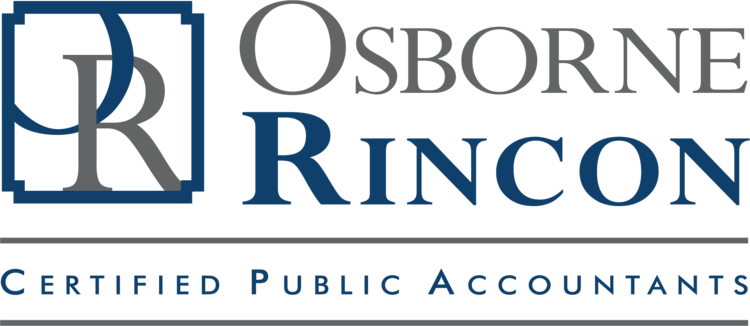By: Lee Osborne, CPA, CFE – President, Osborne Rincon
Agriculture is a unique industry – it depends on good planning for the things that are within an agriculturalist’s purview like the use of fertilizers, pesticides and feed additives – but it also requires the skill to manage the elements that are beyond control such as the weather.
Not surprisingly, the tax laws specific to agriculture can be just as complex as the business itself, and this article speaks to farmers looking to maximize their tax benefits. For example, did you know that it’s possible to purse an accelerated write-off of certain structures in one year? Were you aware that new crops such as citrus, grapes and dates can be written off at a very early stage?
Farming is one of the last industries where the IRS allows the use of income averaging for the income tax calculation. What’s more, there is a new tax law that that gives increased flexibility for cash basis tax reporting.
New in Farming Write-offs
In regards to “Single Use Structures” for farming, if you have a structure that is specifically used for product storage, this can be written off over 10 years or elect the accelerated method and write it all off in the first year. If you are planting a new crop such as dates, grapes or citrus, you can now take make a special election and write it all off in the first year.
Tax Advantages in Equipment Purchases & Net Income
Creating a proper plan for future equipment exchanges is critical. The new tax changed the availability of tax-free exchanges. Previously you could trade in that piece of equipment (truck or tractor) on the purchase of a new one. Prior to 2018, you did not have to treat this exchange as a sale of the item you are trading in.
In addition, part of the new law allows a 20% deduction on net income for tax calculations although there are numerous limitations. This can be very complicated like most tax laws, but well worth the cost of proper planning. Some laws haven’t changed – such as the farmers filing date of March 1st if you haven’t paid any tax estimates for the year.
There is also the law that allows you to take a deduction for prepaying certain farming costs. There is a limitation on this to the extent of 50% of the year’s expense for that particular item. For example, if you spent $250,000 in fertilizer for one year, you can prepay up to $125,000 on December 31st and take an expense deduction for taxes. This does not apply to deposits for equipment and fixed assets.
There are many things to consider as you plan for your farm’s future, and my experience can help you navigate the right way to manage the tax side of your business. I grew up in the Imperial Valley and have been around farming all my life – from driving a tractor at age 12 and raking hay to applying the tax laws for agriculture right out of college. There are many laws that are specific to farming and you should have someone on your side that is very knowledgeable about them when your taxes or financials are prepared.
For more information call Osborne Rincon CPAs at 442-307-5512
